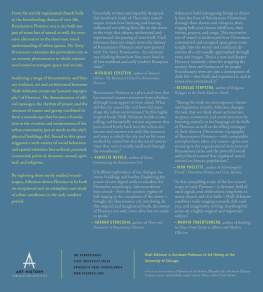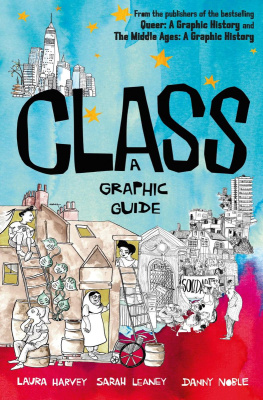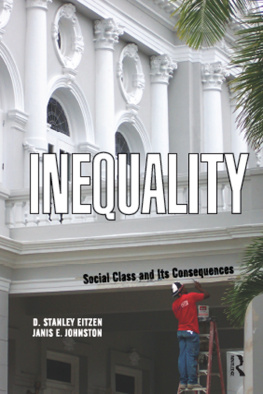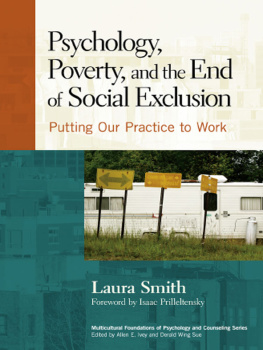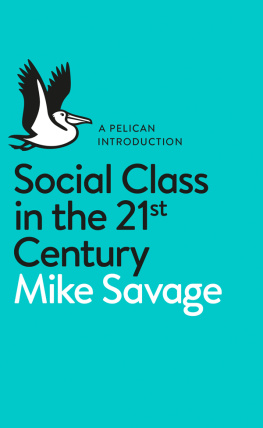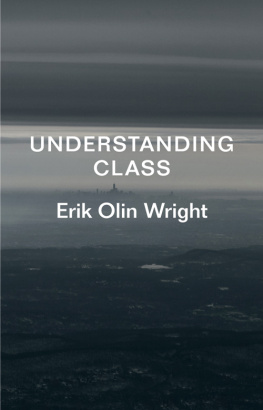
Key Concepts series
- Barbara Adam, Time
- Alan Aldridge, Consumption
- Alan Aldridge, The Market
- Jakob Arnoldi, Risk
- Will Atkinson, Class
- Colin Barnes and Geof Mercer, Disability
- Darin Barney, The Network Society
- Mildred Blaxter, Health 2nd edition
- Harriet Bradley, Gender 2nd edition
- Harry Brighouse, Justice
- Mnica Brito Vieira and David Runciman, Representation
- Steve Bruce, Fundamentalism 2nd edition
- Joan Busfield, Mental Illness
- Margaret Canovan, The People
- Andrew Jason Cohen, Toleration
- Alejandro Cols, Empire
- Mary Daly, Welfare
- Anthony Elliott, Concepts of the Self 3rd edition
- Steve Fenton, Ethnicity 2nd edition
- Katrin Flikschuh, Freedom
- Michael Freeman, Human Rights 2nd edition
- Russell Hardin, Trust
- Geoffrey Ingham, Capitalism
- Fred Inglis, Culture
- Robert H. Jackson, Sovereignty
- Jennifer Jackson Preece, Minority Rights
- Gill Jones, Youth
- Paul Kelly, Liberalism
- Anne Mette Kjr, Governance
- Ruth Lister, Poverty
- Jon Mandle, Global Justice
- Cillian McBride, Recognition
- Anthony Payne and Nicola Phillips, Development
- Judith Phillips, Care
- Chris Phillipson, Ageing
- Michael Saward, Democracy
- John Scott, Power
- Timothy J. Sinclair, Global Governance
- Anthony D. Smith, Nationalism 2nd edition
- Deborah Stevenson, The City
- Leslie Paul Thiele, Sustainability
- Steven Peter Vallas, Work
- Stuart White, Equality
- Michael Wyness, Childhood

Copyright page
Copyright Will Atkinson 2015
The right of Will Atkinson to be identified as Author of this Work has been asserted in accordance with the UK Copyright, Designs and Patents Act 1988.
First published in 2015 by Polity Press
Polity Press
65 Bridge Street
Cambridge CB2 1UR, UK
Polity Press
350 Main Street
Malden, MA 02148, USA
All rights reserved. Except for the quotation of short passages for the purpose of criticism and review, no part of this publication may be reproduced, stored in a retrieval system, or transmitted, in any form or by any means, electronic, mechanical, photocopying, recording or otherwise, without the prior permission of the publisher.
ISBN-13: 978-0-7456-8512-0
ISBN-13: 978-0-7456-8513-7(pb)
A catalogue record for this book is available from the British Library.
Library of Congress Cataloging-in-Publication Data
Atkinson, Will, 1983
Class / Will Atkinson.
pages cm. (Key concepts series)
Includes bibliographical references and index.
ISBN 978-0-7456-8512-0 (hardback : alk. paper) ISBN 978-0-7456-8513-7 (pbk. : alk. paper) 1. Social classes. 2. Social conflict. I. Title.
HT609.A8498 2015
305.5dc23
2015000759
Typeset in 10.5 on 12 pt Sabon
by Toppan Best-set Premedia Limited
Printed and bound in the UK by CPI Group (UK) Ltd, Croydon, CRO 4YY
The publisher has used its best endeavours to ensure that the URLs for external websites referred to in this book are correct and active at the time of going to press. However, the publisher has no responsibility for the websites and can make no guarantee that a site will remain live or that the content is or will remain appropriate.
Every effort has been made to trace all copyright holders, but if any have been inadvertently overlooked the publisher will be pleased to include any necessary credits in any subsequent reprint or edition.
For further information on Polity, visit our website: politybooks.com
Introduction
The sheer variety of things the concept of class appears to cover can sometimes seem bewildering, if not downright contradictory, to those who want to get a handle on it. Everyday conversations, news stories and opinion pieces, but academic research too, all buzz with loose and vague uses which, on closer inspection, might not be all that easy to reconcile. Sometimes, for example, it is used to capture the recently popular notion of a divide between the bankers, or the 1 per cent in income terms, and the 99 per cent of us. At other times it is deployed to make sense of cruel exploitation in dingy workshops around the globe, or tension and conflict between managers and workers in workplaces across the world, or governments being run by people coming from a small number of elite educational institutions thanks to extremely wealthy even aristocratic backgrounds. Then again it seems linked to abject poverty, exclusion and deprivation, or is touted as a cause of lack of social mobility or early death.
At the same time, class is often held to account in some way for rather more pervasive and seemingly ordinary things such as the clothes we wear, the food we eat, the music we listen to, the houses we live in, the way we walk and talk, our plans and aspirations, our dreams and our hopes, our skills and our knowledge, our interests, our morals and our politics. It seems to be simply there in everything we do, what we can do, what we want to do and our relationship with others, so that when we see others we instantly read their place in the world relative to ours through what they are wearing, what they are saying, how they are saying it or what they are doing. We feel we have something in common or not, that we are more or less like each other, and we look up to them or, more perniciously, we look down on them. When we talk of (or to) them, furthermore, we mobilize a vast vocabulary sharpened for the task of distinguishing, differentiating and denigrating, that is, doing down, criticizing, judging the worth of a person in relation to ourselves words such as snob, toff, commoner, scumbag, but also classy, smart, sophisticated, stupid, vulgar, tasteless, dangerous, unfortunate and so on. And of course not everyone possesses equal capacity, equal power, to make their definitions of people stick, to spread them widely and impose them as legitimate, or to deflect or cushion damaging blows to self-worth dispensed by others.
So how can one concept seem to cover so much? How can it account for all of these things at the same time? Are some of the things mentioned really about class, or are they just signs of confusion which needs to be cleared up? Certainly social scientists have to be wary of the multiple, conflicting, fuzzy and confused definitions of class circulating in the media, politics and everyday conversation. We have to break with those folk constructs, those prenotions as Emile Durkheim called them, and put them to one side since part of our interest is in understanding where they come from and what interests they might serve. Yet social science is just as plagued by competing definitions purporting to be able to explain different things or, to be more accurate, to explain lots of things in very different ways usually deriving from clashing ideas about what it means to be human.
The primary aim of this book, then, is to clarify matters for those new to the topic of class. Inevitably there will be some taking stock of where we are currently at, assessment of which directions seem to offer the most fruitful ways forward, taking stances in particular debates and developing possible avenues for further work. Nevertheless, the first and foremost task is to offer an accessible guide to the concept of class, and to achieve this it sets out to explore five sets of relevant questions and the answers given by different schools of thought. The first of these questions, and the most fundamental, is this: what actually
Next page




![Atkinson - An army at dawn: [the war in North Africa, 1942-1943]](/uploads/posts/book/178818/thumbs/atkinson-an-army-at-dawn-the-war-in-north.jpg)

